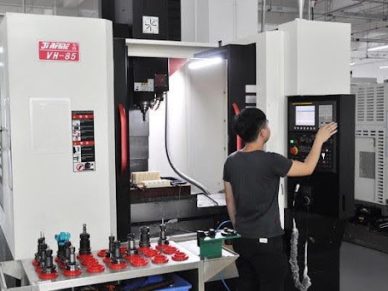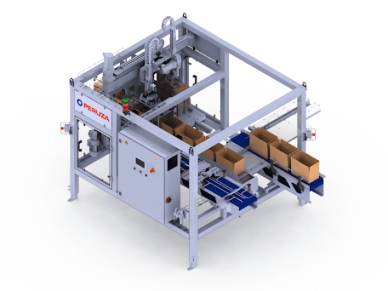In today’s fast-paced era, information plays a vital role in the success of businesses in various sectors, including manufacturing. Effective handling of data volumes is essential for manufacturers to stay competitive in a changing market. Information Management Solutions (IMS) play a significant role in this process by leveraging technologies and integrated approaches to revolutionise the manufacturing industry.

Enhancing Operations with IMS
A significant advantage of implementing a manufacturing information management solution is the streamlining of operations. Traditional paper-based processes can be cumbersome and time-consuming, leading to bottlenecks and inefficiencies. By adopting IMS, manufacturers can digitise their workflows, facilitating collaboration and data sharing among departments.
By utilising databases and real-time data retrieval, employees gain access to crucial information like inventory levels, production schedules, and quality control metrics. This empowers them to make informed decisions.
Minimising Downtime through Predictive Maintenance
Downtime can have an impact on a manufacturer’s efficiency and profitability. In maintenance practices, inspections are carried out routinely, and reactive measures are taken when machinery unexpectedly fails. IMS elevates maintenance practices by introducing maintenance techniques.
By using sensors that are built into machines, IMS gathers up-to-the-minute performance information to help manufacturers anticipate problems before they arise. These valuable insights make it possible to plan maintenance tasks in advance, reducing machine downtime and preventing breakdowns.
Improving Transparency in the Supply Chain
In today’s economy, supply chains form networks that link suppliers, producers, distributors, retailers, and consumers. Managing these networks can be complex and challenging for manufacturers seeking to monitor product statuses and pinpoint areas for improvement.
IMS simplifies this process by offering visibility into the supply chain journey from raw materials to final delivery. By integrating with systems such as Enterprise Resource Planning (ERP) software and Warehouse Management Systems (WMS), manufacturers can access real-time updates on inventory levels, order statuses, shipping tracking details, delivery schedules, and more. This transparency aids in making decisions, reducing inventory shortages, and enhancing capabilities.
Implementing Stringent Quality Control Practices
Maintaining product quality and compliance is a priority for manufacturers across sectors. IMS provides an array of tools to standardise and streamline quality control procedures. By capturing data at each manufacturing stage, IMS enables the monitoring and analysis of quality indicators.
Manufacturers can set up automated alerts for inspections or tests at stages of the production process, which helps reduce the chances of defects or issues related to compliance. If any deviations from the established norms are detected, timely alerts are sent out to enable measures to be implemented promptly.
Efficient Management of Inventory
Effective inventory management plays a significant role in ensuring customer satisfaction while keeping costs in check. Managed inventories often lead to carrying costs, stock shortages, or having to write off obsolete inventory. Inventory Management Systems (IMS) utilise data analytics and machine learning algorithms to optimise inventory levels.
By analysing sales data and demand trends, IMS can accurately predict future demand. This allows manufacturers to adjust their stock levels accordingly and enhance inventory turnover rates while minimising holding expenses. Furthermore, manufacturers gain insights into moving items or products that may benefit from discounts or promotional efforts to boost sales.
Enhancing Compliance & Security
Compliance with industry regulations is essential for manufacturers in terms of safety standards, environmental sustainability practices, labour laws, and safeguarding intellectual property rights. Failure to comply can result in consequences as well as a loss of trust from customers and stakeholders.
IMS offers a platform that ensures adherence to requirements by automating record-keeping processes and monitoring workflows related to compliance standards. It aids in standardising procedures across the organisation by consolidating policy documents and simplifying the process of ensuring the distribution of updates whenever changes occur.
Moreover, stringent security protocols safeguard company data, thwarting access and data breaches. State-of-the-art encryption techniques protect information both at rest and during transmission between systems within the manufacturing network.
Conclusion
With technology rapidly evolving, the manufacturing sector continues to benefit from Information Management Solutions. These solutions have revolutionised how manufacturers operate, from streamlining processes to enhancing visibility in the supply chain. Additionally, IMS enables manufacturers to adopt a data-driven approach that leads to decision-making and improved efficiencies in key areas like quality control, inventory management, predictive maintenance, compliance, and security.
By leveraging IMS capabilities, manufacturers gain an advantage in today’s landscape. Embracing these solutions allows businesses to remain flexible and scalable while achieving growth for long-term success.














Leave a Reply